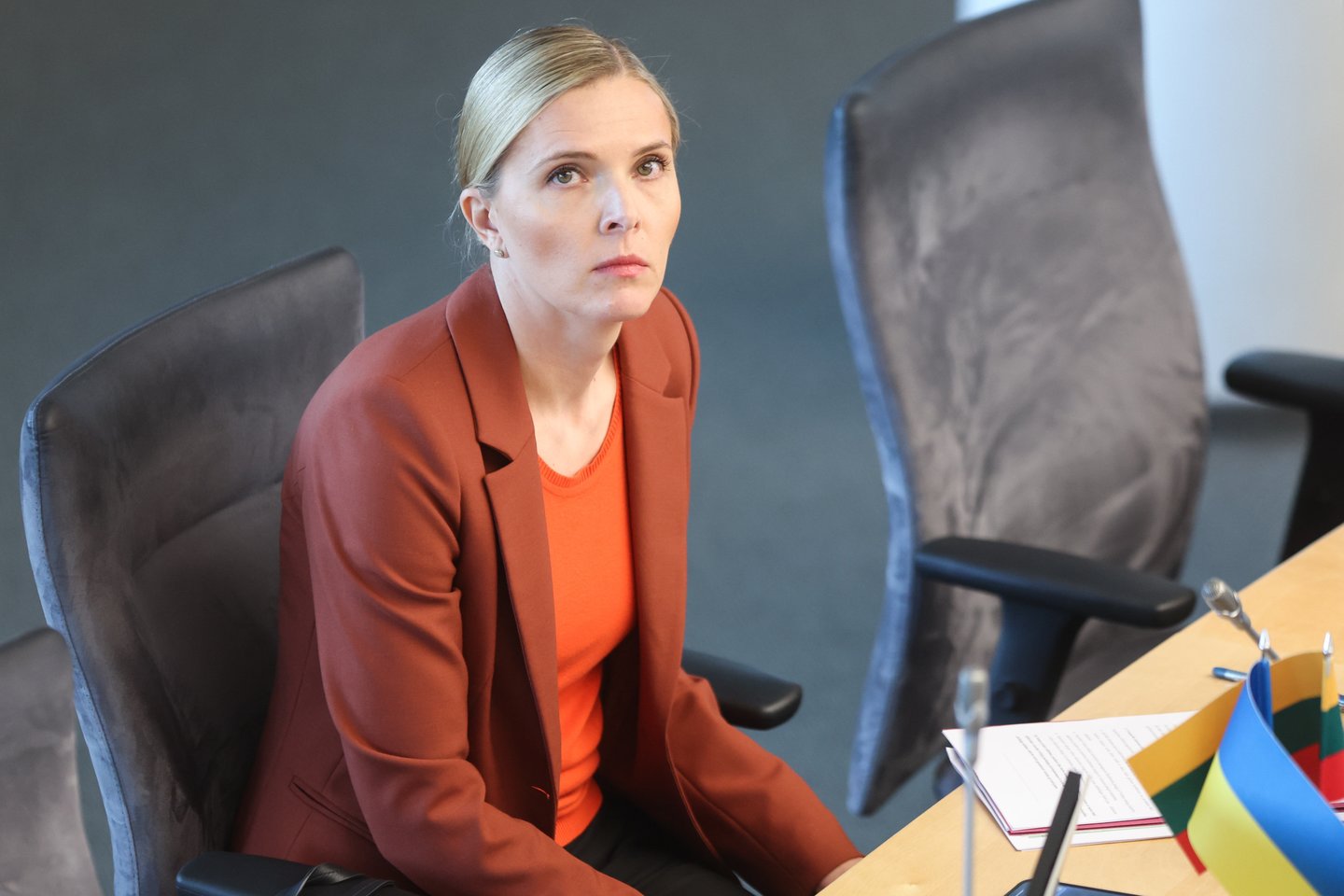„Starting from the new year, (...) according to the recommendations of the Department of State Security, we are planning to close down the centres of external service providers in some countries,“ Bilotaitė told a press conference at the Ministry of the Interior on Monday, without specifying which countries the offices would be closed down in.
„We will also draft amendments to the Law on the Legal Status of Foreigners and other legal acts, tightening the requirements for companies that invite foreigners and at the same time strengthening control over the activities of employers of foreigners, (...) we will tighten the conditions of employment of foreigners, we will propose to allow only authorised foreigners to work, and we will strengthen control over the stay and residence of foreigners in Lithuania,“ – she listed the legal initiatives.
The Minister also plans to tax brokerage letters to companies inviting foreigners to work in Lithuania.
Ms Bilotaitė noted that recently, there have been cases of legal system abuse by foreigners entering the country and businesses bringing in labour. Therefore, she continued, other institutions must get involved – the Department of State Security (VSD) to assess potential threats, the Ministry of Social Security and Labour (SADM) to analyse integration processes, and the Ministry of Foreign Affairs (URM) to identify which foreign countries should be co-operated with, and which should not.
It is observed that many new companies are being created that do not employ but sublet foreigners to other companies. (...) In such a situation, it is essential to identify the situation and put forward concrete proposals,“ the Minister said.
The politician also noted that new geopolitical challenges call for a review of the country's migration policy strategy.
„A new migration policy strategy is needed, adapted to the threats of the times. I am taking the initiative to set up an inter-institutional working group to develop such a migration policy strategy“, she said.
Kasčiūnas and Saudargas propose restricting the establishment of external service providers and providing a clearer procedure for businesses employing foreigners
Conservatives Laurynas Kasčiūnas and Paulius Saudargas plan to register in the Seimas bills providing stricter rules, which have been agreed with the Ministry of Interior. According to the chairman of the Parliament's National Security and Defence Committee (NSGK), migration cannot be based on an open-door policy, so reacting quickly to worrying trends is important.
„The open-door policy must not turn into a process that becomes irreversible – I am talking about some of the Western allies and the current internal situations,“ said Kasčiūnas.
„If we give in to business logic and imagine that we will bring cheap labour here, even skilled labour, and thus support the economy – (such an approach – ELTA) is one-sided and risky“, he stressed. Therefore, with his party colleague, the MEP intends to register amendments to the Law on the Legal Status of Foreigners. One of the draft's points is the obligation to consult the VSD, border guards and the police before setting up an external service provider's office.
„We are introducing a consultation mechanism with all key institutions,“ Kasčiūnas explained.
It is also proposed that a compulsory state language exam should be introduced for foreigners who have lived in Lithuania for at least 5 years, regardless of whether they wish to obtain a permanent or an extended temporary residence permit.
„After 5 years, to renew their temporary resident status, they will have to pass a national language exam,“ he said.
At the same time, Mr Saudargas presented restrictions on business activities. According to the MP, to avoid abuse of the system, the amendments to the legislation would stipulate that foreigners would have to work for at least half a year in the workplace for which they obtained the residence permit.
„If you have already come to work in one company, you must work there for six months and cannot change (your workplace – ELTA). The second aspect is related to leave – unpaid leave is abused, (...) and the foreigner goes to work in yet another country,“ Saudargas said.
In addition, quality criteria would be set for companies.
„Companies could engage in this activity (employment of foreigners – ELTA) if they have 12 months of experience in this field and at least 50% of their income comes from temporary employment,“ the conservative said.
ELTA recalls that amendments to the Law on the Legal Status of Foreigners entered into force on 1 August last year, facilitating the procedures for employing third-country nationals.
Under the new procedure, the business inviting the foreigner-only needs to inform the Employment Service of the employee's qualifications or work experience. Also, highly qualified candidates no longer need to pass a labour market test.
Since the beginning of the year, the deadline for issuing temporary residence permits for unskilled workers has also been shortened from 4 to 3 months, while for highly skilled workers, it has been reduced to one month. In addition, such foreigners can obtain a residence permit abroad by processing their documents through an external service provider.
According to the Migration Department, such applications can be made in 34 foreign countries where VFS Global offices are located.
Also, in July, national visas issued for work purposes were discontinued, and foreigners who have studied in Lithuania can stay in Lithuania more easily with the abolition of the working time limit.
At the end of the summer, a public debate emerged on the plans to open an outsourcing office in Nigeria. Some parliamentarians were concerned about the potential security risks – opening an office in Lithuania would involve inviting staff from a country where the URM recommends against travel. However, after taking into account the institutions' needs and the financial and technical possibilities, it was later announced that no office would be opened in Nigeria.

